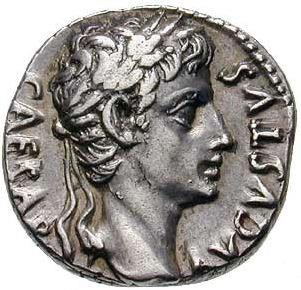Luke 20‒21
Render to God the things of God
Luke 20
20 And watching Him closely, they sent out spies, feigning
themselves to be just, that they might take hold of His word,
to deliver Him up to the rule and authority of the governor.
21 And they asked Him, saying, Teacher, we know that
Thou sayest and teachest rightly, and dost not receive the
face, but teachest the way of God in truth.
22 Is it permitted for us to give levy to Caesar, or not?
23 But He, considering their craftiness, said to them, Why do
you tempt Me?
24 Show Me a denarius5. Whose image and inscription does
it have? And answering they said, Caesar’s.
25 And He said to them, Render therefore the things of Caesar
to Caesar, and the things of God to God.
26 And they were not able to take hold of His saying before
the people, and marveling at His answer, they were silent.
ECCLESIASTICAL and CIVIL GOVERNMENT
NJHD 311. There are two things which ought to be in order with men, namely, the things which are of heaven, and the things which are of the world. The things which are of heaven are called ecclesiastical, and those which are of the world are called civil.
NJHD 312. Order cannot be maintained in the world without overseers, who are to observe all things which are done according to order, and which are done contrary to order; and who are to reward those who live according to order, and punish those who live contrary to order....
NJHD 314. Overseers over those things with men which relate to heaven, or over ecclesiastical affairs, are called priests, and their office is called the priesthood. But overseers over those things with men which relate to the world, or over civil affairs, are called magistrates, and their chief, where such a form of government prevails, is called a king.
NJHD 319. As priests are appointed to administer those things which relate to the Divine law and worship, so kings and magistrates are appointed to administer those things which relate to civil law and judgment.
DP 129. It is a law of the Divine Providence that man should not be compelled by external means to think and will, and thus to believe and love, the things of religion, but should persuade and at times compel himself to do so.
[2] A man may also be compelled to speak in favor of religion and to act according to it; but he cannot be compelled to think in favor of it from any faith in it, or to will the things of religion from any love of it. Moreover, in kingdoms where justice and judgment are guarded, everyone is restrained from speaking and acting against religion; but still no one can be compelled to think and will in favor of it.
DP 136:2. ... Who can be compelled to believe and to love? One can no more be compelled to believe than to think that a thing is so when he thinks that it is not so; and one can no more be compelled to love than to will what he does not will, for belief belongs to the thought and love to the will. There is, however, an internal which may be restrained by the external from speaking evilly against the laws of the kingdom, the moralities of life and the sanctities of the Church. To this extent the internal may be compelled by threats and punishments; and moreover, it is compelled and ought to be.
TCR 430. The public duties of charity are especially the payment of tribute and taxes, which ought not to be confounded with official duties. Those who are spiritual pay these with one disposition of heart, and those who are merely natural with another. The spiritual pay them from good will, because they are collected for the preservation of their country, and for its protection and the protection of the church, also for the administration of government by officials and governors, to whom salaries and stipends must be paid from the public treasury. Those, therefore, to whom their country and also the church are the neighbor, pay their taxes willingly and cheerfully, and regard it as iniquitous to deceive or defraud. But those to whom their country and the church are not the neighbor pay them unwillingly and with resistance; and at every opportunity defraud and withhold; for to such their own household and their own flesh are the neighbor.
5 A Roman silver coin, typical wages for a day’s labor, like a Greek drachma
Questions and Comments
- The Lord exercised authority to cast out the people buying and selling from the temple, but He did not claim authority over paying tribute or levy to Caesar. In the Doctrine He distinguishes the things of heaven from the things of the world. On what civil issues should priests take a stand, and on what issues should they not?
- Divine Providence says that in a well-ordered kingdom, everyone is restrained from speaking and acting against religion, and from speaking evilly against the laws of the kingdom, the moralities of life and the holy things of the church. But the English are praised for their freedom of speech and of the press, allowing them to think more clearly than other nations (TCR 807). How do these ideas fit together?
- To what extent do Americans regard deceiving or defrauding on their taxes as an honorable game; or on the other hand, to what extent do we pay our taxes from good will, regarding the country as our neighbor?
| previous |  |
next |
|---|


